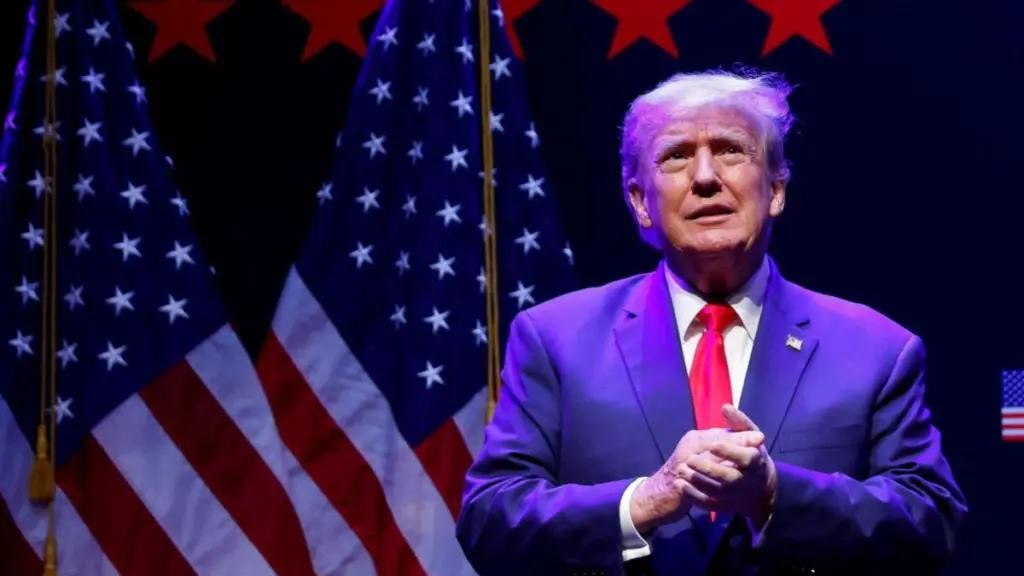
Donald Trump Exempts Smartphones & Computers from Reciprocal Tariffs: A Relief for Tech Giants
In a move that has sent shockwaves across the tech industry, United States President Donald Trump has excluded smartphones, computers, and other electronic items from the reciprocal tariffs imposed on Chinese goods. According to a Customs and Border Patrol notice, the exemption applies to a range of products, including semiconductors, telecommunications equipment, and computer software.
This decision comes amid growing concerns from tech giants, including Apple, that gadget prices may rise due to Trump’s tariffs. Many of these products are manufactured in China, and the tariffs imposed by the US could lead to increased costs, potentially hurting the bottom line of these companies.
The exemption is seen as a relief for tech giants, which have been vocal about the potential impact of Trump’s tariffs on their business. Apple, in particular, has been affected by the tariffs, as several of its products, including the iPhone, are manufactured in China. The company has already warned investors that the tariffs could lead to higher prices for its products.
The exemption is also seen as a sign of the growing complexity of the trade tensions between the US and China. While Trump has been vocal about his desire to reduce the US trade deficit with China, the tariffs have also been criticized for their potential impact on American consumers and businesses.
The exemption does not apply to all Chinese goods, however. The 125% tariffs imposed by the US on Chinese goods, including electronics and machinery, remain in place. The tariffs were imposed as part of a broader trade dispute between the US and China, which has seen both countries impose tariffs on each other’s goods.
The trade dispute has been ongoing for several months, with both countries imposing tariffs on each other’s goods. The tariffs have had a significant impact on the global economy, with many businesses and consumers feeling the pinch.
The exemption is seen as a sign that the US is willing to engage in negotiations with China to resolve the trade dispute. The US has been pushing China to agree to a trade deal that would address several of its concerns, including intellectual property theft and forced technology transfers.
China has been resistant to the US demands, however, and the trade dispute has shown no signs of easing. The exemption is seen as a sign that the US is willing to take a more nuanced approach to the trade dispute, and that it is willing to listen to the concerns of its allies and partners.
The exemption is also seen as a sign of the growing importance of the tech industry in the global economy. The industry has been a driver of innovation and growth, and it has been a key factor in the US-China trade dispute.
The exemption is likely to be welcomed by tech companies, which have been vocal about the potential impact of the tariffs on their business. Apple, in particular, has been affected by the tariffs, as several of its products are manufactured in China.
The company has already warned investors that the tariffs could lead to higher prices for its products. The exemption is seen as a relief for the company, which has been struggling to balance the impact of the tariffs on its business.
The exemption is also seen as a sign of the growing complexity of the trade tensions between the US and China. While Trump has been vocal about his desire to reduce the US trade deficit with China, the tariffs have also been criticized for their potential impact on American consumers and businesses.
In conclusion, the exemption of smartphones, computers, and other electronic items from reciprocal tariffs is a relief for tech giants, including Apple. The exemption is seen as a sign that the US is willing to engage in negotiations with China to resolve the trade dispute, and that it is willing to listen to the concerns of its allies and partners.
The exemption is also seen as a sign of the growing importance of the tech industry in the global economy. The industry has been a driver of innovation and growth, and it has been a key factor in the US-China trade dispute.






